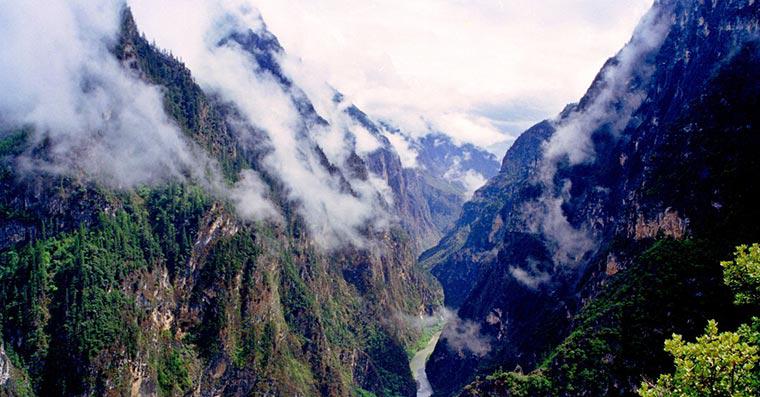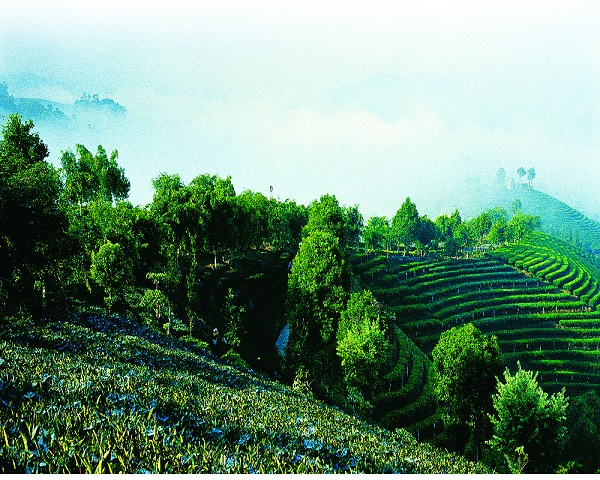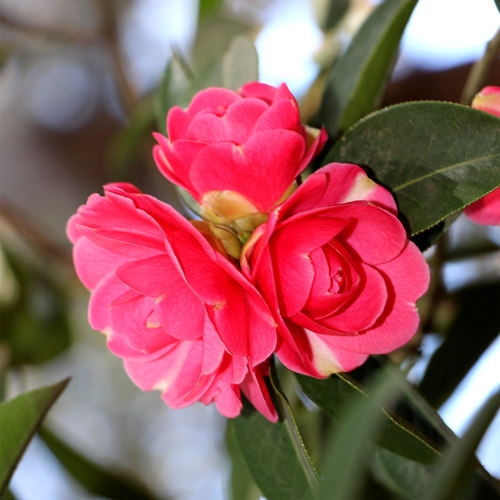
Explore the important towns and stations on the ancient tea-horse road
The Ancient Tea-Horse Road is a non-governmental international trade channel with the horse caravan as main means of transportation in southwest China, and is a corridor for the national economic and cultural exchanges in southwest China. The Ancient Tea-Horse Road originated from the tea-horse mutual market in the southwest frontier area of ancient times, which rose in Tang and Song Dynasties, flourished in Ming and Qing Dynasties, and was most prosperous in the middle and late period of the World WarⅡ.
The Ancient Tea-Horse Road starts from Yiwu Town of Xishaungbanna, Puer City of Yunnan Province, and enters Lhasa of Tibet through today's Bai Autonomous Prefecture of Dali, Lijiang City and Shangri-la. Some also extend from Tibet to India and Nepal, which is an important trade channel for ancient China.
Travel to Yunnan, there are two routes to visit the Ancient Tea-Horse Road:
1.The Old Official Road in Southern Yunnan
Recommended Routes: Xishuangbanna--Pu’er--Honghe--Kunming--Qujing--Zhaotong--Kunming
Mengla County--Yiwu Town
The starting point of the Ancient Tea-Horse Road, Yiwu Town, Mengla County, Xishuangbanna City, is the birthplace of Pu’er tea. The ancient road and ancient town are well preserved now and there are Pu’er tea trees that have survived for over a thousand years in the town.
Simao District--The Ancient Tea-Horse Road Tourist Attraction
It is located at Lameipo Village in the northwest of Pu’re City, and about 5 km away from Pu’er city. It is an important section in the north-south direction of the Ancient Tea-Horse Road and is the best-preserved and the longest part, boasting the richest culture of the Ancient Tea-Horse Road and the most favorable ecological environment along the road. In history, Pu 'er was the distribution and trade center of tea in Southern Yunnan.

Mojiang County--Bixi Ancient Town
The Bixi Ancient Town of Mojiang County is full of nature’s treasures and outstanding people. In history, Bixi Ancient Town is an important station on the Ancient Tea-Horse Road, and the only route and resting place for merchants and horse caravan.
Ning’er County--Mohei Ancient Town
“The green mountains surround the town and the river flows around it. The lanes of the ancient town are quiet as well as the houses and stone ladders everywhere.” Here is Mohei Ancient Town, a famous salt town of southern Yunnan, an important Tea-horse Ancient town, a glorious old revolutionary base area and a famous hometown of beauty.

Ning’er County--Nakeli Tea-horse Station
Nakeli is an important station on the Ancient Tea-Horse Road of ancient Pu 'er prefecture. It is located in the south of Ning 'er County, 16 kilometers away from the county seat of Ning 'er and 25 kilometers away from the city of Pu 'er.
There are relatively well-preserved Ancient Tea-Horse Road sites, century-old Rongfa station, some historical relics such as the lantern which horse caravan used in the past and horse stone water through.

Zhenyuan County—Qianjiazhai Village
The Ancient Tea-Horse Road, known as the Southern Silk Road, witnessed the long history of Pu 'er tea; The wild tea tree king of over 2,700 years old in Qianjiazhai Village, Jiujia Town, Zhenyuan County, Pu’er City, is the carrier of tea tree's origin and evolution history, and is known as the living fossil of the tea industry.
The Ancient Tea-Horse Road in the Qianjiazhai section is a part of Yinan Road which is one of the three ancient roads in Yunnan. This long Ancient Tea-Horse Road , hidden in the primitive forests of the vast Ailao Mountain, spans over 1,500 years of history and has gone through many vicissitudes. The tracks of horse's hoof on the quartzite record the prosperity of the road in ancient southern Yunnan and the legendary stories about the horse caravan.

Honghe County--Yisa Caravan Ancient Town
Yisa Town, located on a mountain ridge of south bank of the Honghe river, was once the habitat of the indigenous people, the Pula people (Yi ethnic group branch), who lived by farming and hunting.
In the 1930s and 1940s, the development of the Yisa horse caravan reached a period of great prosperity and had a great influence on Southeast Asia.
Dongmen Mabang Ancient Town is located in Dongmen Street of Honghe County, which is mainly composed of Dongmen Gate Tower, Chinese-western folk house of Yao Chuju and maze courtyard of Qian Erguan, which were all built in the early Republic of China.
Qujing City--Shengjingguan
Shengjingguan is the first station from Guizhou to Yunnan, known as the “the first pass into Yunnan”, located in Fuyuan County of Qujing City. Shengjingguan Ancient Post Road, commonl



